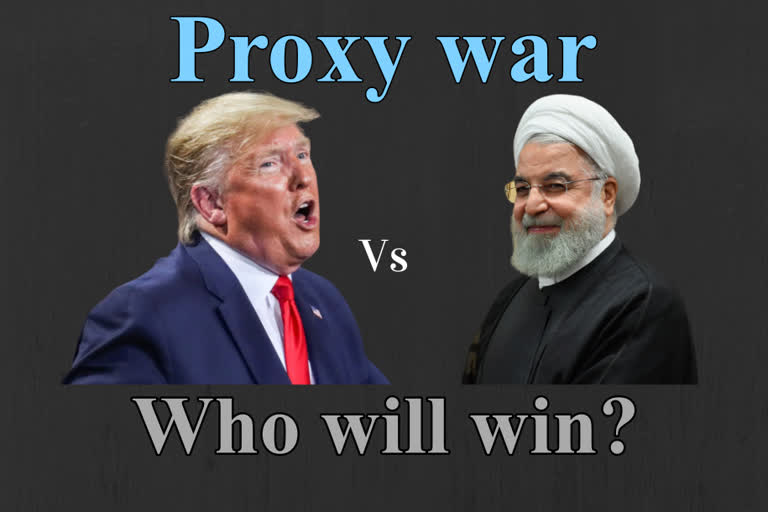Washington: President Donald Trump’s decision to eliminate Maj. Gen. Qassem Soleimani, commander of Iran’s elite Quds Force, may have changed the game both in the Middle East and in current American politics.
Many experts, including some on US television, saw escalation as imminent and war as a possibility because past US presidents had hesitated to take Soleimani out. The risks were deemed too high.
Trump decided to take the risk and the coming months will show whether it was worth it. He does not want war or regime change in Iran – Secretary of State Mike Pompeo repeated the US position after the drone strike that took Soleimani out.
Iran too will not want a full-fledged war because it cannot win against the US. It has, however, vowed “harsh” revenge and its proxies have threatened retaliation against US troops in the Middle East. The heated rhetoric hides the grim reality of increasing pain from US sanctions and a restive population.
On Tuesday Iran launched a few missiles at US forces in Iraq in its first act of retaliation. The hope is it won’t lead to a tit-for-tat by the US and miscalculations by Iran. The current cycle of attacks and counter-attacks started with Iran downing a US drone last summer. Trump ordered a retaliatory strike but called it off at the last minute.
Iran then attacked Saudi oil facilities in September and most recently launched rockets at a military base near Kirkuk on Dec. 27, killing an American contractor. Trump sent fighter jets against Kataib Hezbollah, an Iraqi Shia militia that acts as Iran’s proxy, killing 25 people. The militia’s leader Mahdi al-Muhandis was then killed along with Soleimani.
The US attack on Kataib Hezbollah led to the storming of the US Embassy in Baghdad on New Year’s Eve, trapping diplomats inside. The protestors broke through the main gate and managed to get into the reception area. It was a humiliation that Trump answered with an order to kill Soleimani.
Although the official justification for the order was preventing “imminent” future attacks on US personnel and assets, the reality is it was an answer to the attack on the US Embassy.
The Iraqi parliament has voted for a resolution to end US military presence in Iraq but Sunnis and Kurd legislators did not attend. Some Iraqis and Syrians are relieved that Suleimani is dead, given his violent meddling in their countries.
Also read: India asks citizens to avoid non-essential travel to Iraq
Soleimani propped up sectarian militias from Syria to Lebanon and was “central to almost every regional event in the last two decades,” according to long-time Middle East observer and scholar Kim Ghattas. His reach often went beyond the region, including to New Delhi -- he is said to have been behind the February 2012 attack on an Israeli diplomatic car in which four people were injured.
His role in suppressing protests at home was no less hair-raising – the Internet was shut down in November for seven days allegedly to quell widespread protests against a 200% hike in gas prices. More than 1,000 protestors were killed in a relative vacuum, according to Reuters.
But to many Iranians, Soleimani was a Che Guevara-like figure who fought hard against the US or the “Great Satan” and against ISIS. Iran expert Karim Sadjadpour of Carnegie Endowment contends that the “impact of Soleimani’s killing on Iranian public opinion will be fleeting” and Iranians will soon move on the harsh struggles of daily life.
Trump’s order to kill a general believed to be responsible for the deaths of many US troops in Iraq has also scrambled things at home. The Democrats agreed that a world without Soleimani was better but they have questioned the legality of the decision, saying it could be seen as an act of war by Iran.
Also read: Iran FM denied US visa to attend UNSC meet
Jerry Nadler, chairman of the House Judiciary Committee, spoke for many when he said, “Soleimani was a terrible man who caused terrible violence in the world but Congress did not authorize the president to start a war and we must work to prevent an escalation, which this attack may provoke.”
Soleimani’s killing has also put Democratic presidential candidates in a quandary, forcing them to show their hand on a tough foreign policy issue when they would rather talk about health care and other domestic issues. Candidate Elizabeth Warren was ridiculed on Twitter for calling Soleimani a “murderer” on Jan. 2, and then saying he was “a government official” three days later.
Leon Panetta, former president Barack Obama’s defence secretary, has called the recent events “the greatest test” of Trump’s presidency. Over the past three years, Trump has mocked America’s allies, disparaged his opposition and denounced his own intelligence agencies but now he may have also rattled some of his own supporters who believed his promise to end the “forever wars.”
Trump has taken a gamble and the big question is whether his actions will make Iran rethink its proxy war or enlarge it.
Also read: Iran threatens to attack Dubai, Haifa if country is bombed



